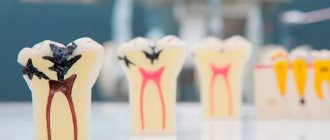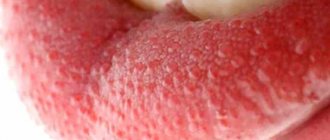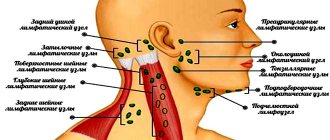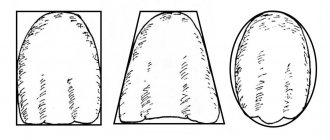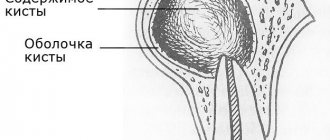Symptoms Causes and treatment What is dangerous?
Home remedies Prevention Modern people have a fast pace of life, everyone has a lot of things to do, meetings, and obligations. Therefore, most of us tend to ignore minor symptoms such as an aching tooth, pain when biting, or reddening of the gums. As a result: tooth inflammation, pain, discomfort, postponed meetings and rescheduled plans.
Symptoms of tooth inflammation
Inflammation is the body's response to bacterial attack. Tissues begin to produce immune cells, signaling the hematopoietic organs that more white blood cells are needed. As a result, the vessels dilate, and the place where the microbes have penetrated swells and turns red. Nerve endings connect the pain syndrome so that we react as quickly as possible.
Is it possible to do without going to the dentist?
A visit to the dental clinic is the only way to get rid of inflammation and, if possible, save the tooth. The sooner the drugs are taken, the higher the likelihood of a favorable outcome. Otherwise, the patient risks getting the complications described above, among which tooth loss is not the most unpleasant outcome.
Timely detection of the disease is the key to success. Don't rely on home treatment. Without the intervention of a dentist, tooth inflammation can only progress, causing more and more dangerous consequences over time.
Main features
- Pain
In each case it can manifest itself differently. Sometimes it is pain when biting, sometimes it is continuous. It may get worse at night and subside with meals. It can radiate to the temple, ear, even nose. Being whiny or harsh.
- Redness
It may or may not be visible. This is a symptom that is more often detected by a doctor.
- Edema
Any inflammation is accompanied by swelling, but we cannot always determine this.
- Temperature increase
This doesn’t always happen, but fever is a sign of inflammation, so in this case you definitely shouldn’t put off going to the dentist.
- Tumor
This is also a dangerous signal; you need to see a doctor urgently.
If a tooth is inflamed and hurts, temporary measures will not help; you need a full diagnosis and treatment in a clinic. The alternative is tooth loss due to an advanced process.
Care after root treatment
It is very important to take good care of your teeth, especially oral hygiene during the recovery period after root canal treatment. Once treatment is complete, your tooth will be completely restored and should be pain free, although it may be tender for a few days after root treatment.
In most cases, you can prevent the need for root canal treatment by:
- Maintaining good oral hygiene
- Regular visits to the dentist
- Avoiding large amounts of sugary foods
- No bad habits - quit smoking if you smoke
Causes
Accurate diagnosis is important for a positive treatment outcome. It is this that allows you to determine why the tooth is inflamed. There are 3 diseases hidden under the general term.
Pulpitis
Microbes penetrate through the dentin layer to the neurovascular bundle - the pulp. People call it a nerve. Usually, this happens with deep caries. The pulp is penetrated by nerve endings. The pain is often acute and difficult to endure. But sometimes it is not strong, periodic. We ignore it and the inflammation becomes chronic, destroying the pulp. A small bun makes a huge difference:
- produces secondary dentin, therefore, although the height of the teeth changes throughout life, they do not disappear completely;
- participates in tissue metabolic processes;
- conducts nerve impulses.
When the pulp dies, the tooth is said to become “dead.” Such teeth are quickly destroyed.
To treat pulpitis in dentistry, therapeutic and surgical methods are used. In the first case, medications are placed into the tooth cavity and closed with a temporary filling. After some time, the tampon with the medicine is removed and the tooth is filled. This method does not always help relieve inflammation inside the tooth.
If the process has gone far, the pulp or part of it is removed and then a permanent filling is placed.
Periodontitis
Under the crown of the tooth there is connective tissue - periodontium. As a result of injury or poor treatment, microbes penetrate there, causing inflammation of the tooth root - periodontitis.
.
There is an apical form, when only the apex is affected, and a marginal form, when all the tissue around the root is infected.
Symptoms of periodontitis:
- pain while eating or when jaws touch;
- feeling that the tooth stands out from the row (has become taller);
- temperature increase;
- tissue redness;
- tooth mobility;
- discharge of pus.
Periodontitis is an insidious enemy. Often the disease occurs without symptoms. It can only be suspected when the signs of the disease become pronounced: roots are exposed, gums bleed, pus is released, bone tissue decreases.
Treatment depends on the type of periodontitis and severity:
- Therapeutic method
The doctor opens access to the root canals, removes part or all of the pulp, and installs drainage to drain the pus. After a few days, the drainage is removed, the canals and tooth are processed and filled. It is recommended to place a crown on such a tooth.
- Surgical method
They resort to it if fibrosis has developed or there are granulomas.
Dentist:
- Cuts off the root tip
- Removes 1 root in multi-rooted teeth
- Amputates the root but leaves the crown intact
- Removes a tooth
- Performs separation (cuts the tooth in half, cleans it and puts it back together)
A course of antimicrobial tablets helps relieve inflammation inside the tooth.
Periodontitis
Periodontium is the fibers that hold the tooth in its socket. Plaque allows bacteria from it to penetrate into the periodontium and begin to rapidly multiply, forming a periodontal pocket. From the pocket, it is easy for them to get under the crown of the tooth and cause an inflammatory process there.
Before treating tooth inflammation under the crown, periodontal pockets are curetted, freeing the surface from tartar and plaque. Then they begin other manipulations: getting rid of caries, splinting teeth. Often, for periodontitis, a course of antibiotics is prescribed. The inflammation must be stopped so that the tooth does not have to be removed.
What provokes the inflammatory process
Periodontium is the connective tissue located between the cementum of the tooth and the alveolar plate. Inflammation of this tissue that forms the tooth root is called periodontitis. There may be several factors that trigger the pathogenic process:
- The consequences of advanced caries and pulpitis are infectious inflammation of root tissue.
- Incorrect treatment of pulpitis causes drug-induced periodontitis. It occurs due to the contact of potent medications (for example, arsenic) on the surface of the periodontium. Sometimes the root becomes inflamed due to an allergy to medications used to treat pulpitis.
- Jaw injuries (from blows, falls, regular microtraumas). The course of traumatic periodontitis is quite acute.
- Inflammation of the root tissues of the tooth can be a complication after sinusitis, other ENT pathologies or osteomyelitis (an extra-dental type of disease).
In addition, the reasons that cause inflammation of the peri-root tissues of the tooth include the following pathologies: rupture of the wall or the entire root cavity; lack of patency of root canals; cystic formations around the tooth root or already grown into the maxillary sinus; injury to root tissues when removing pins or core inlays. In severe advanced stages, with inadequate therapy, marginal periodontitis can be observed, in which the gums are also affected along with the root apex.
What is dangerous about severe inflammation of tooth tissue?
If measures are not taken in time, the inflammatory process can lead to:
- to the formation of granulomas, cysts, abscesses;
- pulp death;
- loosening of teeth;
- removal or loss of teeth;
- spread of infection to the jaw bone (flux);
- development of general diseases, including myocardial infarction.
It is very important to start treating tooth inflammation on time, and even better, to prevent it. Many clinics provide services for the treatment of dental inflammation. It is worth choosing one that has gained a lot of experience, has its own diagnostic base, and provides guarantees for the doctor’s work.
How is tooth root treatment performed?
To treat a root canal infection, the bacteria causing the disease must first be removed. The following types of infection removal exist:
- removal of bacteria from the root canal system (root canal cleaning and treatment)
- complete tooth extraction (tooth extraction is highly not recommended, since it is very important to preserve your teeth and fight for their health)
After the bacteria have been removed from the canals, the root canal is filled, after which the crown of the tooth is filled with a light-composite filling and/or closed with a crown. In most cases, after treating the canals with medicine, the inflamed tissue near the tooth is restored naturally.
Root canal treatment is generally a successful procedure. In 9 out of 10 cases, the tooth can survive and serve the patient for 10 years after root canal treatment.
What to do if a tooth becomes inflamed?
It is clear that it is better to consult a dentist. What if the doctor is far away, you are at the dacha, it’s night and there is no one to leave the children with? You can try to relieve the pain yourself, using what you have at hand. The World Wide Web is full of tips on how to relieve tooth inflammation at home.
Folk remedies recommend:
- Gargling with herbal decoctions. Sage, chamomile, calendula are suitable. It is important that the broth is not too hot or cold. The optimal temperature is 50-60 degrees.
- Applications from clove oil, eucalyptus, propolis tincture. Be careful with tinctures, alcohol can burn the mucous membranes.
- Solutions of salt and soda help wash away food debris and relieve irritation. A drop of iodine in the solution will perform a disinfecting function.
If there are no herbs and it is unclear what to rinse with, there is a modern life hack. Mouthwashes contain antimicrobial agents and herbal extracts. They will cope no worse than infusions and decoctions.
Important! A sick tooth should not be heated. Avoid heating pads, bags of hot sand, and salt.
But a cold compress can relieve swelling and reduce discomfort.
If you have painkillers in your medicine cabinet, don’t delay taking them. The pain is exhausting and makes it difficult to concentrate. It’s better to relieve the pain and think about the next steps.
Remember, taking a pill does not fix the problem. Knowing how to relieve pain is useful, but only a qualified dentist can find the cause and eliminate it.
What will they do in the hospital: diagnosis, treatment
First of all, the doctor needs to determine the diagnosis and cause of the inflammation. To do this, radiography is performed to determine what stage the process is at.
The main factors leading to inflammation are:
- Advanced caries, due to which an infection has entered the tooth.
- Incorrect treatment (poor canal filling, bad filling), which also leads to infection.
- Injuries, root fracture, etc.
- Insufficient hygiene.
If the situation is neglected, there is a possibility of immediate removal of the diseased element.
If treatment is possible, first of all, the diseased tooth is cleaned of damaged tissue. The procedure requires the administration of anesthesia. The doctor will clean the canals, expand them if necessary, and disinfect them. If necessary, the patient takes a course of antibiotics, rinses with disinfectant solutions, and physiotherapy. A special substance may be placed into the tooth as a temporary filling. After there is no inflammation or pus left in the tooth, it can be sealed with a permanent filling.
What preventative measures are there?
To keep your teeth healthy for many years, you need to brush your teeth twice a day, use floss and a tongue scraper. After sweets, you should rinse your mouth and chew gum for 5-10 minutes.
Prevention also includes the removal of tartar. A sufficient amount of saliva is also important, so it is necessary to maintain a water regime.
Like any other pathology, caries is better prevented than treated. Therefore, it is important to visit the dentist twice a year for preventive examinations. People at risk should approach this especially responsibly.
Other
Aimed Center - professional dental care
All types of dental services are provided by the Aimed clinic for residents of Moscow, Northern, Southern Butovo. The center employs doctors with many years of experience. Specialists provide therapeutic, surgical, endodontic, orthopedic, orthodontic treatment according to new European protocols. When treating tooth root inflammation and providing other services, we guarantee our patients:
- Complete painlessness of the procedure, use of proven, certified anesthetics;
- A comfortable clinic environment that is incomparable to hospital conditions;
- Use of new Japanese, American, European equipment for accurate diagnosis and treatment;
- Use of modern consumables, drugs from Israel, USA, Japan;
- Possibility of visiting the center from 08:00 to 21:00, seven days a week, holidays;
- Reception of patients of any age from the youngest to the elderly;
- Formation of favorable prices for all services without compromising the quality of the work performed.
- To make an appointment with a specialist, call +7 (495) 120-66-43. Clinic operators select a convenient time for your visit. And in the clinic’s parking lot there is always a free space for your car. We located at the metro station st. Gorchakova.
Remember, you should never ignore toothache. A minute of delay or self-therapy with folk remedies (rinses, compresses) threatens with serious complications!

